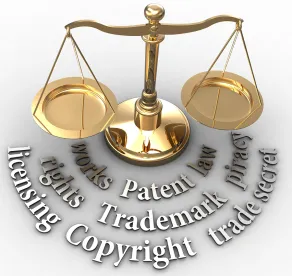Today the Supreme Court granted certiorari in a case that may have profound implications for U.S. patent law by abolishing inter partes reviews at the U.S. Patent & Trademark Office (USPTO).
In Oil States Energy Services v. Green’s Energy Group, Case 16-712, the patentee—Oil States— had a patent related to “fracking” and sued its competitor, Green’s Energy. In response, Green’s Energy petitioned the USPTO to institute an IPR on the patent. The USPTO instituted the IPR and held the patent claims unpatentable. On review at the Federal Circuit, Oil States challenged the merits of the USPTO’s decision, but it also argued that IPRs were contrary to Article III and the Seventh Amendment of the Constitution. Specifically, Oil States argued that suits to invalidate a patent must be tried before a jury in an Article III court. Oil States argued that the invalidity of patents had traditionally been a jury issue before a court and it was inappropriate for Congress to grant the power to invalidate a patent to an administrative agency. The Federal Circuit summarily affirmed the USPTO’s IPR decision. The summary affirmance implicitly relies on the Court’s prior precedential decision in MCM Portfolio v. Hewlett-Packard Co., 812 F.3d 1284 (Fed. Cir. 2015), which addressed that very issue.
Oil States petitioned the Supreme Court for certiorari on the constitutional question, among others. Green’s Energy opposed and the USPTO originally waived a brief in response to Oil State’s petition. The Supreme Court, however, requested a response from the Government. The Solicitor General’s office subsequently argued that patents were a public right and that there was nothing unconstitutional in giving the USPTO the opportunity to invalidate a patent that it never should have granted in the first place. The Supreme Court today granted certiorari over the Government’s argument.
What impact would a determination that IPR, PGR and CBM proceedings are unconstitutional have?
It would obviously turn the current post-AIA paradigm on its head. It would remove now wellused vehicles that third parties rely on to effectively challenge what they perceive to be wrongly issued patents. It would also immediately increase the value of the patent grant since the conventional wisdom is that it is far more difficult to annul patents in District Court than it is in the Patent Office. We would expect a spike in patent litigation.
Would any decision finding the proceedings to be unconstitutional be retroactive?
It is possible, but not likely. For example, in Northern Pipeline Const. Co. v. Marathon Pipe Line Co., 485 U.S. 50 (1982), the Supreme Court determined that the 1978 Bankruptcy Act was unconstitutional, but the Court declined to give its decision retroactive effect because of the potential for “substantial injustice and hardship” on litigants who had already relied on the act. Nonetheless, petitioners should prepare for a disruption if Oil States is reversed.
Are there any short term actions those involved in AIA proceedings should take?
Perhaps the most important action for patent owners is to preserve the argument that the PTAB does not have the authority to invalidate duly issued patents. Include this argument at whatever stage of the proceedings you happen to be in. This is true even at the appellate stage before the Federal Circuit since in some circumstances a party need not raise a constitutional challenge to agency action to preserve the argument for appeal. See Beard v. Gen. Servs. Dmin., 801 F.2d 1318, 1321 (Fed. Cir. 1986).
What is the likely timeframe for resolution? The case will likely be argued this winter, with a decision before June 2018.





 />i
/>i
